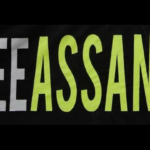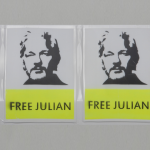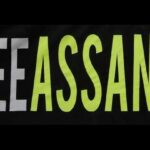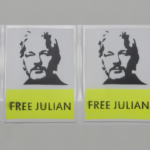Albanese Says He’s Working to Free Assange, But Many Are Sceptical
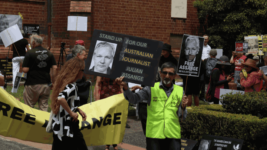
“It is time that this matter be brought to a close,” PM Anthony Albanese said regarding Julian Assange, who continues to be remanded in London’s Belmarsh Prison on behalf of Washington, as the globe awaits to see whether the Australian publisher and journalist will be extradited to the US.
The PM added on 30 November that he’d made this assertion “clear to the US administration”, after he’d earlier implied on 31 May that his government was conducting quiet diplomacy on Assange’s behalf, when he made the statement, “not all foreign affairs is best done with the loud hailer”.
However, it was a rather sceptical crowd of supporters that gathered out the front of Albanese’s office in Sydney’s Marrickville last Saturday, human rights day, to call on the Labor government to take more urgent and tangible diplomatic action to secure the WikiLeaks founder’s release.
Indeed, Greens Senator David Shoebridge put it to the crowd that the PM’s recent comments regarding bringing the matter to an end are quite ambiguous and, in line with some earlier revelations, he questioned whether Albanese is actually referring to a speedy prosecution in the US.
And in taking the microphone after the Greens politician, ADF whistleblower David McBride further disputed the government’s sincerity in making efforts to secure Julian’s release, especially as he’s living proof of Canberra’s bipartisan disapproval of those who uncover government corruption.
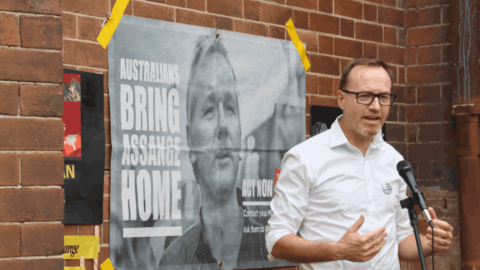
Ambiguous consent
“We keep getting told its about quiet diplomacy,” said Shoebridge. “Well, it’s bloody near silent diplomacy. And with this coded phrasing, like ‘this should end’, what does that even mean?”
“Does that mean it should end by Julian being extradited and gaoled with a fixed term? Is that what the prime minister means?” he continued. “Well, I think that is what he means.”
The Australian Greens justice spokesperson had already raised an issue with the shrouded diplomacy in the Senate last August, which resulted in a government admission that it “cannot intervene in the legal matters of another country” and rather it continues “to seek assurances” from its allies.
This development followed human rights lawyer Kellie Tranter having released government documents obtained via freedom of information in July that suggest that Labor has been conducting its diplomacy in a manner that includes the contemplation of extradition and prosecution in the US.
“This should end,” Shoebridge made certain. “It should end with a clear statement from our allies in the UK that they return Julian Assange. And it should end with a clear statement to the US that they stop the prosecution and seek, at minimum, that they release Julian.”
Global jurisdiction
Assange first sought asylum in London’s Ecuadorian Embassy in 2012, ultimately, to avoid being sent to the US. But in April 2019, the Townsville-born man was handed over to UK authorities, who imprisoned him for a short time on a bail breach, prior to then remanding him pending extradition.
After initially refusing to extradite Assange based on his deteriorating mental health, the UK approved the process in June based on flimsy US assurances that it wouldn’t subject him to its most extreme prison regime once he’s in custody and prosecuted on charges carrying up to 175 years.
“The United States has now asserted that if anybody on the planet, no matter where, spills the secrets of the US… that they will come after you no matter where you are on the planet and seek your extradition for potentially a lifetime in gaol in the US,” Shoebridge continued.
“That is an obscene injustice. That is an extreme extension of any country’s power,” he added. “The fact that our government continues to see that as a legitimate act of an ally, says a lot about our government.”
The senator further detailed the extralegal nature of the UK-US proceedings, which include Assange not being under any “contract or legal obligation of confidentiality” with the US, that he merely published files that told the truth and that he wasn’t even in US jurisdiction when he did so.
“But, of course, our government is also comfortable with hounding whistleblowers, with persecuting whistleblowers, and we should acknowledge that they are actually quite comfortable with a whistleblower being in gaol,” the senator said, as he gave a nod to McBride in the crowd.
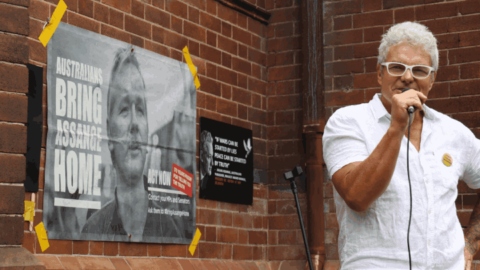
Shooting the messenger
On taking the mike out the front of the PM’s office, McBride stressed that he wouldn’t be taking “anything that the Albanese government is saying seriously”, adding that this is a government that has committed to “unlimited US troops” and has basically turned the nation into “a US base”.
The former ADF lawyer pointed out that while the White House attempts to string up Assange on its own soil for actions carried out on foreign land, any US soldier stationed in Australia, will be exempt from local prosecution if they commit any crimes over here.
McBride blew the whistle on Australian war crimes being perpetrated in Afghanistan, where he’d served two tours. He did so internally but as his complaints were ignored, he went public with revelations showing that management had left special forces to run riot in an overseas country.
But the former military lawyer, who is facing possible life imprisonment next year, sees hope for the future, despite what is now clearly a federal bipartisan agenda to see McBride imprisoned, even though the subsequently released government-commissioned Brereton report supports his actions.
“The good news is the next election could see the Labor Party cleaned out, because if you believe in Labor Party principles, you wouldn’t vote for Albanese next time,” McBride told rallygoers. “And people like David Shoebridge, one day, may be running this government.”
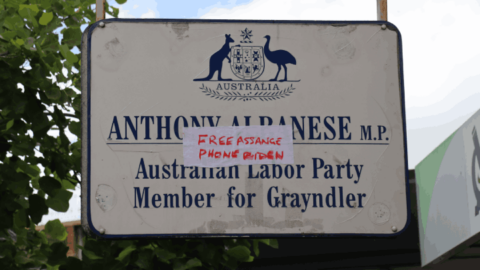
To be seen to be acting
“David McBride’s crime is about telling the truth about war crimes in Afghanistan,” Shoebridge underscored. “To date, years after that information came into the public domain, McBride is the only person who is being criminally prosecuted because of war crimes in Afghanistan.”
After the AFP raided the ABC over publishing the details of McBride’s leaks in June 2019, the government published the Brereton report in late 2020, which recommended the AFP investigate 23 credible incidents, involving 19 Australians, as likely war crimes for potential prosecution.
“How cooked is a legal system and a government to seek such serious evidence of war crimes in Afghanistan and the only person they’ve prosecuted is a whistleblower,” Shoebridge continued, adding that the case against ATO whistleblower Richard Boyle is similarly illegitimate.
Currently, Assange’s legal team are mounting a challenge of the US extradition proceedings with the European Court of Human Rights. And the five global media outlets that published the documents alongside him have finally spoken out in his defence.
“I commend you all for coming out today and retaining the faith in basic human decency in calling for Julian to be returned,” Shoebridge told the ardent supporters gathered out the front of PM Albanese’s office on 10 December.
“Because the people of the world deserve the truth, Julian deserves his freedom, and we deserve a far better government than that bloke is delivering.”



